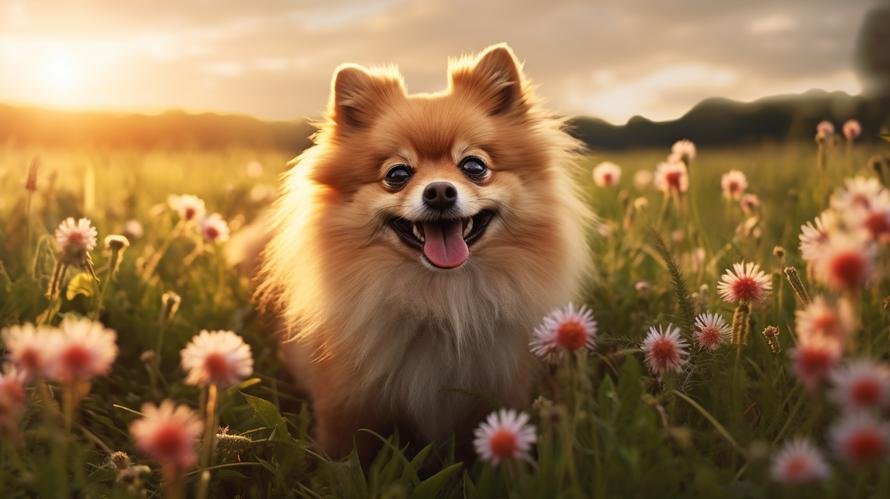Did you know that miniature-sized Pomeranians are descendants of large sled dogs used in the Arctic? That’s right, these tiny balls of fluff can trace their roots back to the sturdy, robust dogs that were historically part of the frigid Arctic life. It certainly makes you wonder if those tough genes contribute to the rumors of Pomeranians’ potential ethos of aggression.
The question frequently asked, especially by potential Pomeranian owners, is – are Pomeranians aggressive? This is mainly because of the perceived notion associating small dog breeds with feisty and aggressive behavior. This article aims to demystify any doubts or misconceptions and offer useful advice about the temperament of Pomeranians and how to deal with their behavior.
Firstly, let’s clarify an important factor. Every dog, regardless of breed, is unique and possesses a character influenced by a variety of elements, such as upbringing, training, socialization, and sometimes, genetics. The essential focus should not be on the breed but on understanding the individual dog.
Are Pomeranians aggressive by nature? The simple answer is no. Pomeranians are not inherently aggressive. They are rather known for their lively, friendly, and playful demeanor. These pint-sized pooches are often the life of the party, radiating an infectious energy that lights up any room. They also form strong bonds with their human family and love to cuddle and play.
That said, Pomeranians can exhibit defensive behaviors that may come across as aggressive. This trait does not stem from an inherent ‘bad attitude’ but from a survival instinct. Being diminutive in size, Pomeranians are aware of their vulnerability and may become anxious or overly protective in the face of threats – perceived or real.
Pomeranians may also exhibit a syndrome known as Small Dog Syndrome. This is where the dog believes they are the pack leader and behave dominantly to assert that perceived authority. It is not limited to Pomeranians but can exist in any small dog breeds. It can manifest as territorialism, constant yapping, or snapping at bigger dogs or strangers.
So, if you’re facing issues with a Pomeranian showing signs of aggression, the behavior is likely related to these factors rather than an innately feisty disposition. The good news is, these issues can be addressed and resolved with consistency, training, and socialization.
Early socialization is a not-so-secret secret to a well-behaved Pomeranian. Exposing your Pomeranian puppy to different environments, people, and dogs helps them understand that the world is not a threatening place. It softens their defensive reactions and makes them confident, happy, and well-adjusted adults.
Training is another crucial factor. Obedience and discipline should be instilled from an early age. Positive reinforcement methods work best with Pomeranians. Reward their good behavior with treats, praises, or play. Strict punishment can backfire and foster fear or anxiety instead of understanding.
Another sphere of concern could be dealing with Pomeranians and children. While these dogs typically love their human family, younger children may elicit an undesired response due to their unpredictable actions. It’s always advised to educate kids on respectful behavior around dogs (no tail-pulling, bothering during eating or sleeping, etc.) and never leave them unsupervised with any dog.
Pomeranians are responsive to their environment and owners. If they are treated with kindness, understanding, and respect, they will respond in kind. Exercise, including regular walks and play, helps keep their energy levels in check and boosts a positive mental state.
In conclusion, labeling a Pomeranian, or any dog, as ‘aggressive’ is an oversimplification. Like humans, dogs also have personality traits and behaviors influenced by many factors. With Pomeranians, any aggressive-type reactions are often defensive and related to their small size and survival instincts.
Instead of jumping to conclusions about the breed, strive to understand your dog’s individual personality and needs. With the right training, socialization, and care, Pomeranians can be loving, loyal, and well-behaved companions. They can fill your life with joy, laughter, and an endless supply of adorable Instagram-worthy moments!



